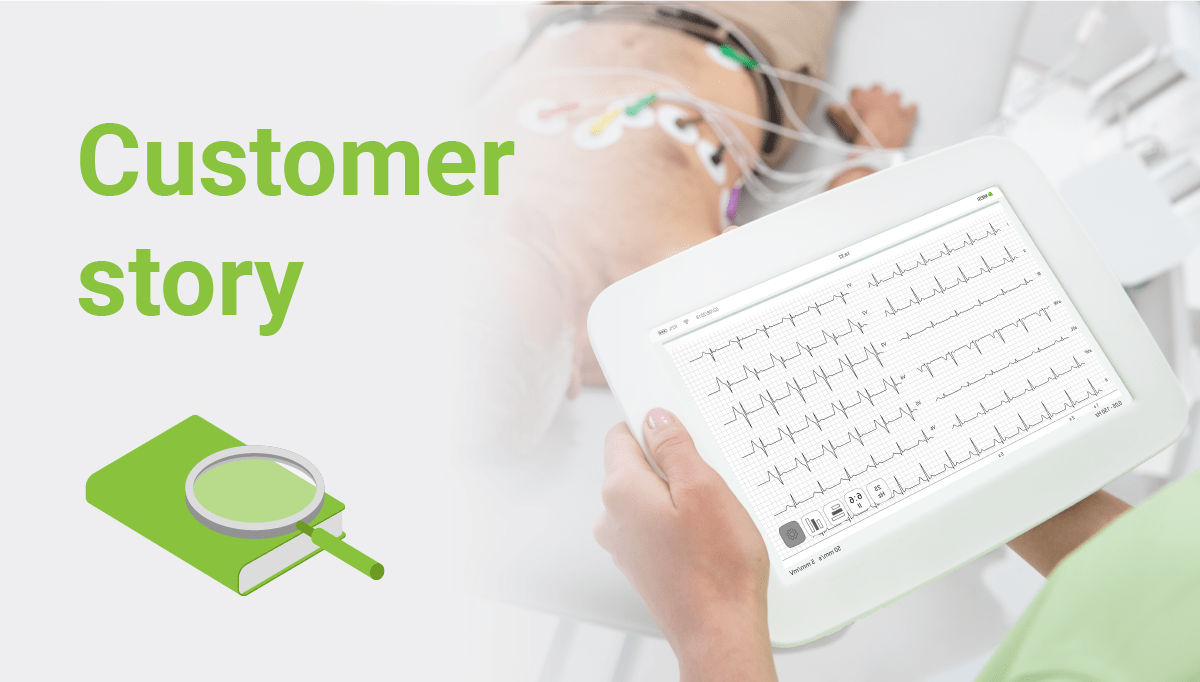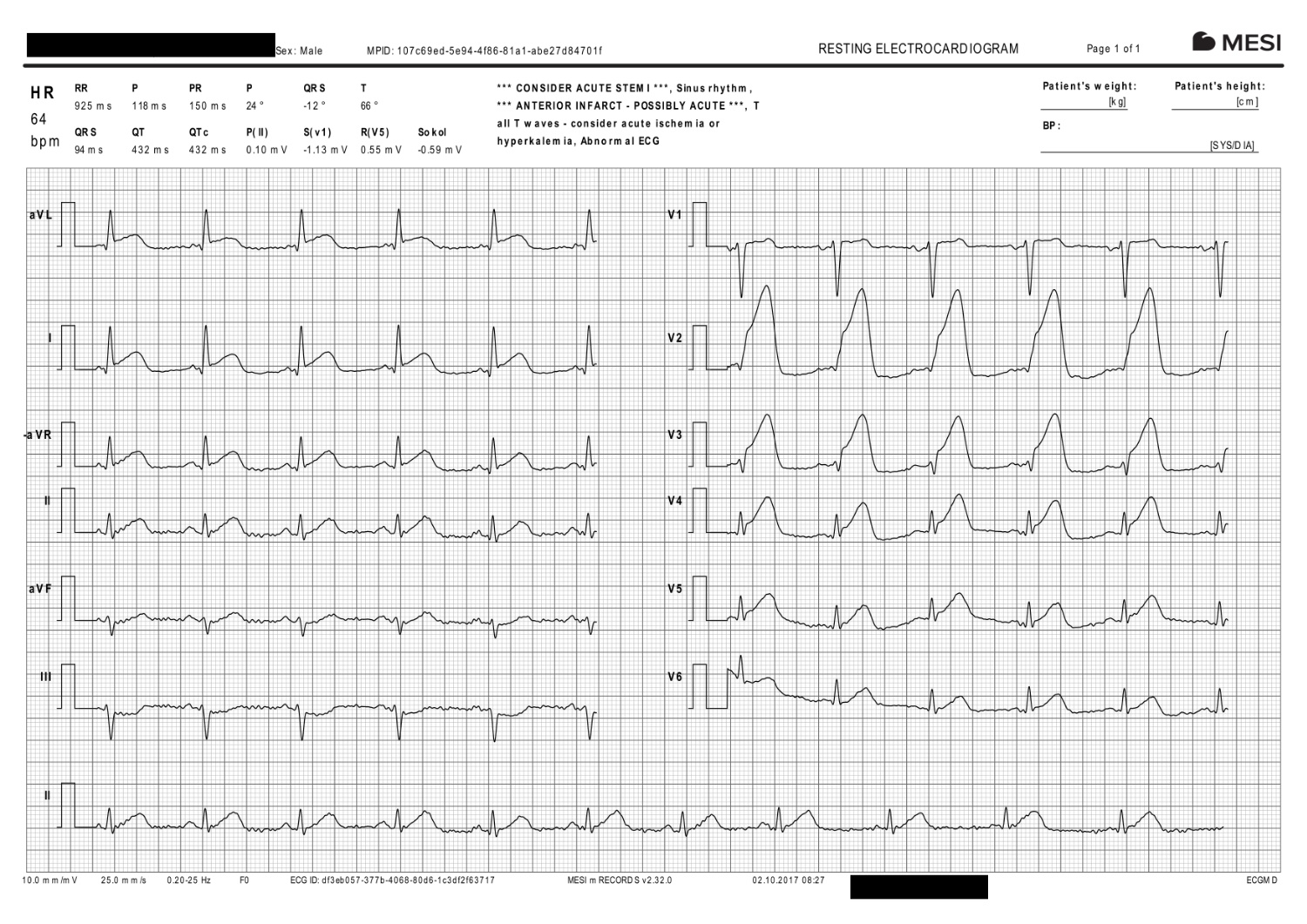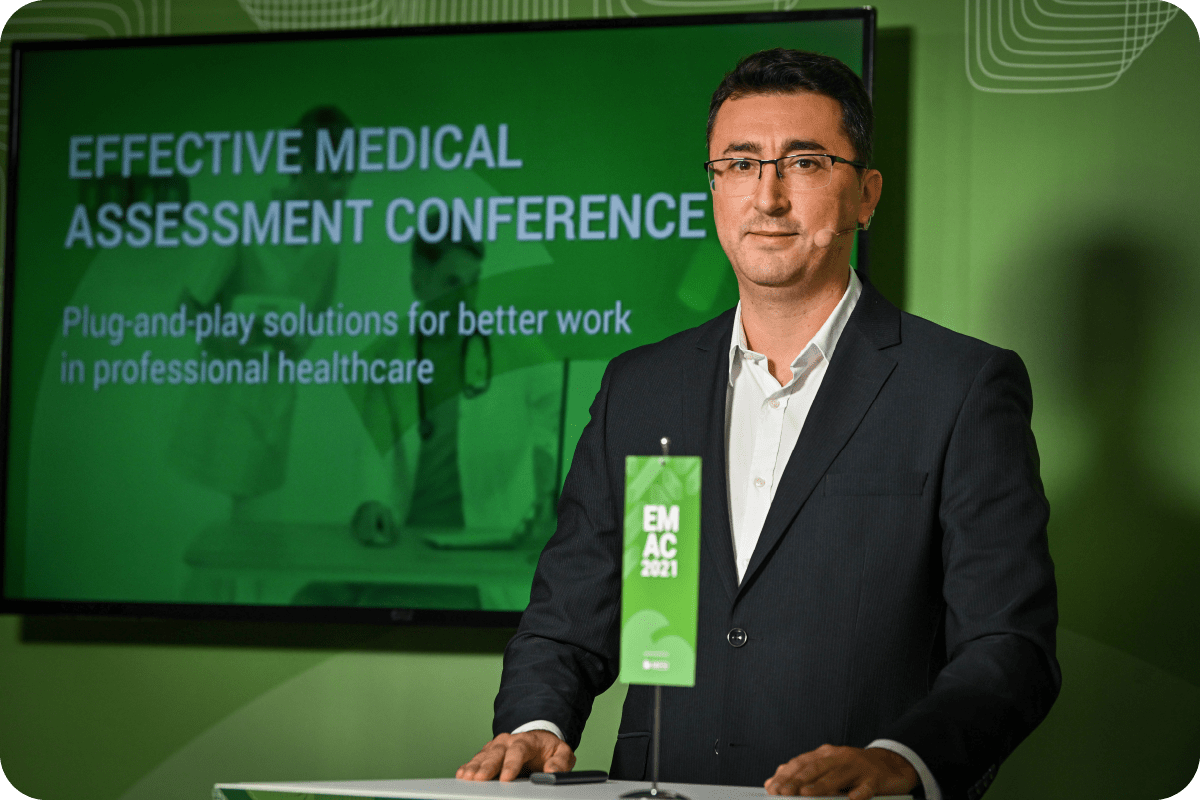The MESI mTABLET ECG helps discover a case of subendocardial myocardial infarction

Arcus Medici is a family medicine and kinesiology clinic in Žiri, a town in northwestern Slovenia. One of its challenges is that the nearest hospital is a 50-minute drive away. For this reason, fast and effective diagnostics on-site is essential, especially in emergencies. One was that of a 71-year-old male who experienced an emergency health event and was managed by Dr. Ivan Pecev, a specialist of family medicine.
Case study
The patient was relatively healthy and moderately physically active. Smoking stood out among his risky habits; he had smoked 1 pack of cigarettes a day for more than 40 years. He had mildly elevated cholesterol levels, but was not on medication. About 6 months before the event, he was treated for chest pain at the Department of Intensive Internal Medicine at the University Medical Centre Ljubljana (the capital of Slovenia). However, there was a spontaneous improvement and no signs of infarction were discovered at that time.
One morning, the patient woke up to a throbbing pain behind the sternum, which spread to both shoulders and along the upper extremities. He also felt sick and vomited. The pain lasted 10 minutes and then spontaneously disappeared, only to return a few minutes later. The patient immediately drove to Arcus Medici and asked for help.
Dr. Pecev found that the patient had visible, typical signs of a myocardial infarction like pain, paleness and sweating. The vital signs were within normal limits, but the ECG gradually confirmed the seriousness of the situation. Dr. Pecev says:
“The MESI mTABLET ECG helped us a lot because we were able to keep monitoring the patient and constantly making ECGs. After a few minutes of having the patient connected with the ECG, heart attack signs began to appear.”

In about 10-15 minutes, the MESI mTABLET showed an evident heart attack (STEMI) – elevations in the anterior and lateral wall leads.
After instantly sharing the MESI mTABLET ECG results and a consultation with the Department of Intensive Internal Medicine at the University Medical Centre Ljubljana, the patient was transported to the University Medical Centre Ljubljana by helicopter in about 30 minutes.
During the transport, he received 7500 IU of heparin, a total of 13 mg of morphine, 2x2 sprays of nitroglycerin and 6.5 mg of thiethylperazine. Upon arrival at the catheterization laboratory, he showed signs of cardiogenic shock with pulmonary congestion and mottled skin.
The patient successfully underwent the emergency procedures. After hospitalisation, he was referred for rehabilitation at a natural health resort. Due to the infarction, he how has chronic ischemic heart disease and signs of heart failure. He has regular check-ups at Arcus Medici as well as at a cardiologist.
The MESI mTABLET system not only helps detect conditions, but also takes medical communication to a new level. With the review of past measurements in the patient’s file and an easy share function for a second opinion, it enables fast and effective patient referrals as an effective tool in emergencies.

Dr. Ivan Pecev is a family medicine specialist at the Arcus Medici outpatient clinic in Žiri, Slovenia. Dr. Pecev is also a co-author of the handbook entitled ‘Physical activity for better health and well-being’.